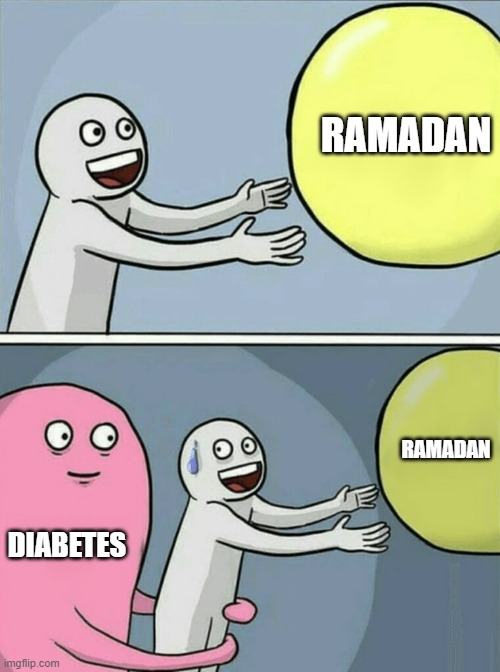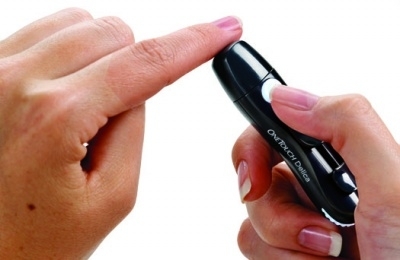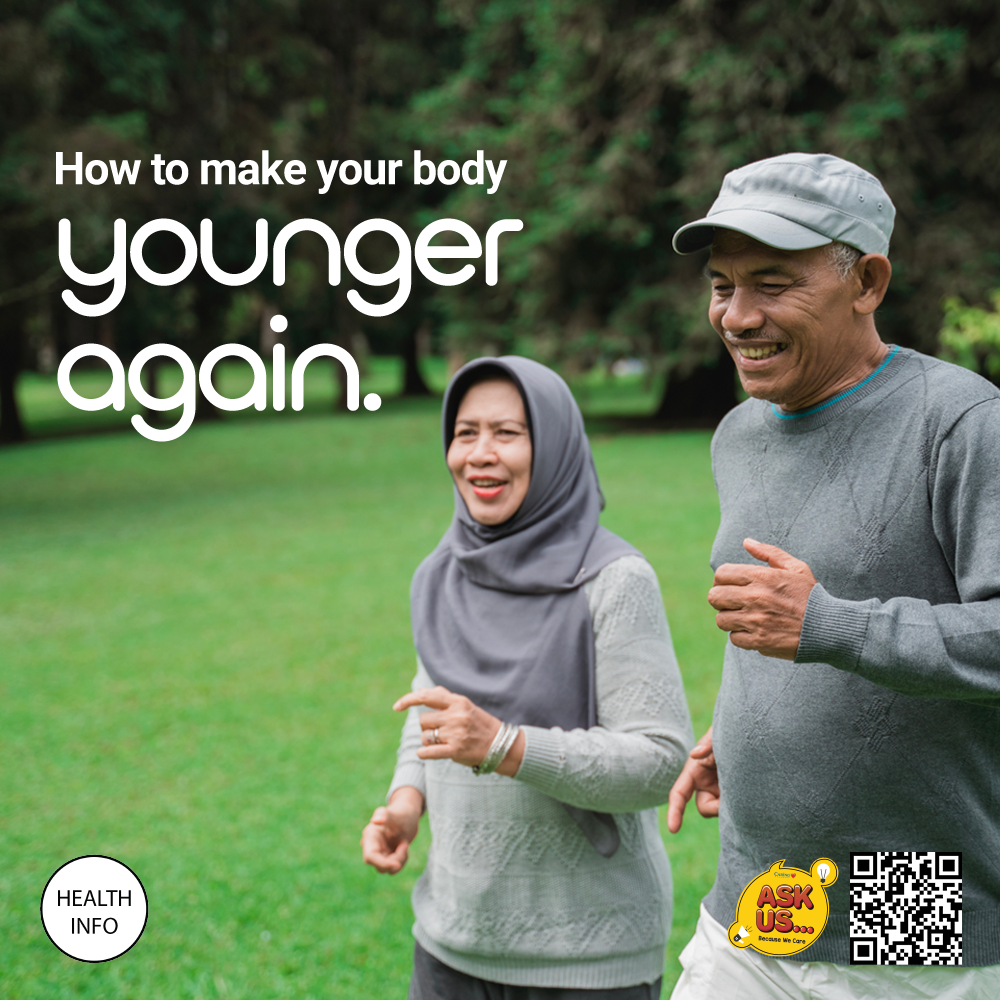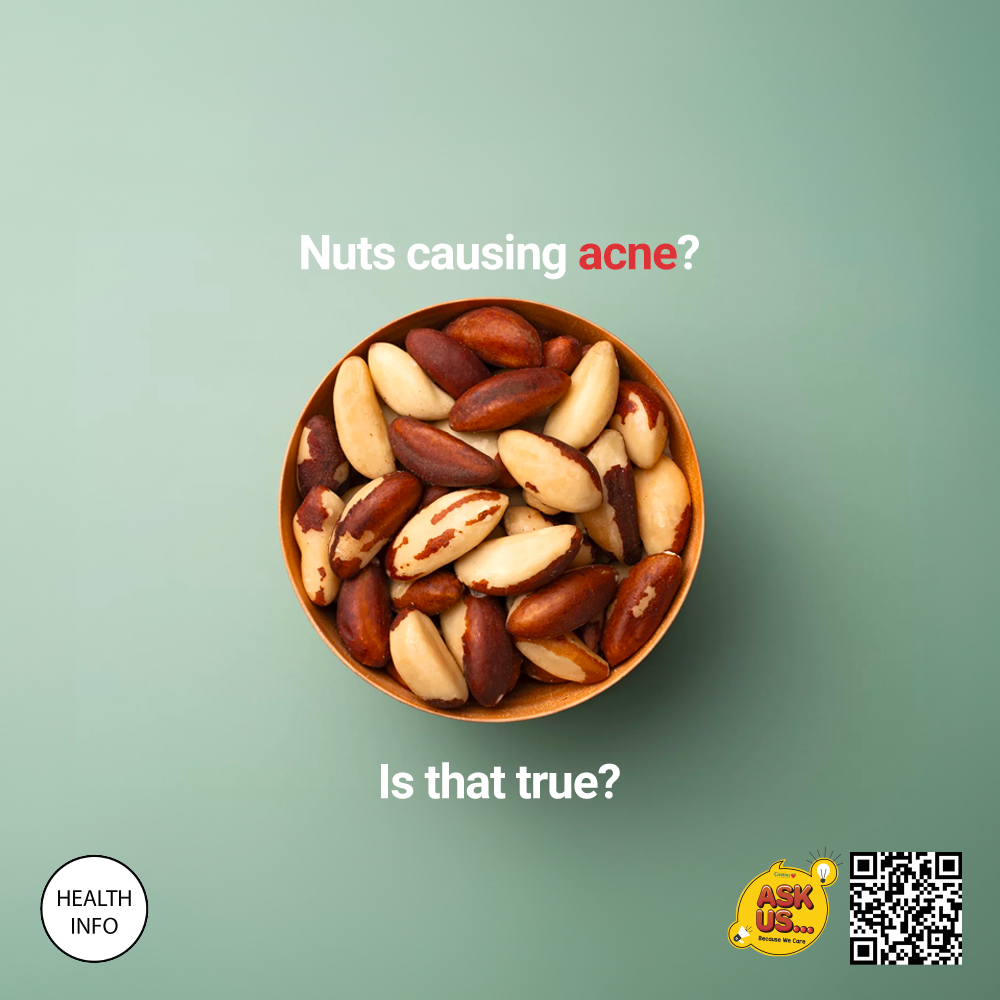- Home
- Health Center
- Health Info
- Diabetes and Ramadan: What to Do & When to Stop?
Diet
Diabetes and Ramadan: What to Do & When to Stop?


As we all know, fasting is mandatory during Ramadan for all healthy Muslim adults. However, fasting can be challenging for diabetic patients and for healthcare professionals to manage. Fasting is associated with elevated risk of developing hypoglycaemia (low blood sugar levels), hyperglycaemia (high blood sugar levels) and dehydration.

Preparation prior to Ramadan
Talk to your doctor or your pharmacist for a pre-Ramadan medical assessment. Healthcare professionals are capable of screening your health condition and helping you to manage your blood sugar level during Ramadan. Your risk during Ramadan depends on the following risk factors:
General Well-being
Diabetes Medications
A group of oral diabetes medications known as Sulfonylurea has a higher risk of causing critically low blood sugar levels as compared to other oral diabetes medications.
Tip: How to know if you are taking one of Sulfonylureas? If you are taking a diabetes medication that is to be taken before meal daily, it is likely to be one of Sulfonylureas. Ask your pharmacist to know more!
Glycaemic Control
Fluctuating blood glucose level puts you at a higher risk
Other diseases
Hypertension, high cholesterol levels, etc
Make sure you ask your doctors and pharmacists regarding the followings:
- Risk of adverse effect of fasting
- Self monitoring of blood glucose
- Signals to stop fasting
- Meal planning, food choices and fluid intake
- Exercise and physical activity
- Dose modification of your antidiabetic medications
During Ramadan
Blood Glucose Monitoring
Blood glucose monitoring is crucial during Ramadan. Blood glucose check needs to be done immediately when symptoms of hypoglycaemia arise such as sweating, dizziness, feeling shaky or tired. This is especially true for patients on insulin. For patients on insulin, the frequency of blood glucose check depends on the type of insulin the patient is currently on.

Want to know which category (intermediate/long, premixed or rapid/short acting) the insulin you are using falls under? Ask your pharmacist today!
Know You’re Good To Go
Many are discouraged to practice regular blood glucose monitoring due to the fear of finger pricking. This concern is ameliorated by new and improved lancing devices such as OneTouch Delica. OneTouch Delica has an Advanced Glide Control System which guides the lancet precisely in a swift, straight motion for a smooth and stable lancing experience. This system also controls vibration for smooth and precise lancing.

Blood glucose meters such as OneTouch Select Simple and OneTouch Ultra Plus Flex also help to make tracking your blood sugar easier and faster. The OneTouch Ultra Plus Flex meter requires only a simple 2-step testing, easier to understand with ColorSure™ technology that shows when you’re in or out of range, and has a higher accuracy.

Meal Plan, Food Choices & Fluid Intake
Sahur (pre-dawn meal):
- Should never be omitted
- A balanced meal with adequate carbohydrate
- To be taken as late as possible, just before Imsak (dawn)
- Reduce salt intake (salt leads to dehydration)
Iftar (breaking of fast at sunset):
- Should not be delayed
- Intake of high sugar foods should be avoided
- 1-2 kurma (dates) at the start of Iftar
- Sufficient fluid to be taken (Aim for 8 glasses of water in a day)
- Main meal is encouraged after the performance of Maghrib prayer.Supper after Terawih (supererogatory prayers) as a pre-bed snack can be considered.
Exercise & Physical Activity
Light and moderate exercise is recommended. Avoid vigorous exercise during the day as this increases the risk of hypoglycaemia. Preferably 1-2 hours after Iftar. Performance of Terawih prayers is a form of physical activity
When to Terminate Fasting?
Criteria to terminate fasting:

Dosage Modification of Glucose Lowering Medications
Many antidiabetic medications require adjustments during Ramadan. Some require omission of a dose, some involve dose-lowering while others involve changing the administration time. This is a complex topic so make sure you consult your healthcare provider.
Ramadan Bersama CARiNG and OneTouch
Diabetes management during Ramadan is complex and requires an individualised approach. That is what makes it so important for diabetic patients preparing for Ramadan to plan ahead with the help of a pharmacist. CARiNG Pharmacy offers free consultation to all with concern of blood sugar control during Ramadan.
OneTouch New User Program – Purchase 2 boxes of OneTouch Ultra Plus Strip 25’s at any CARiNG Pharmacy and get an OneTouch Ultra Plus Flex meter for FREE!
*Valid until 31 December 2021.
Visit any CARiNG Pharmacy store for more information.
References:
- Management of Type 2 Diabetes Mellitus (6th Edition). Ministry of Health Malaysia. (2020). Clinical Practice Guidelines.
A community awareness message brought to you by:
Latest Health Info
10 Compounds That Rejuvenate Your Bone, Joint & Memory
When it comes to supplements, there’s so much hype about their benefits that it can be hard to separate fact ...
How To Make Your Body ‘Young’ Again
How To Make Your Body ‘Young’ Again Aging gracefully is the dream of many. Don’t we all want to age ...
Does Nut Cause Acne
‘I have bad acne breakouts, I must avoid anything with nuts’ This is a common statement that you hear from ...



